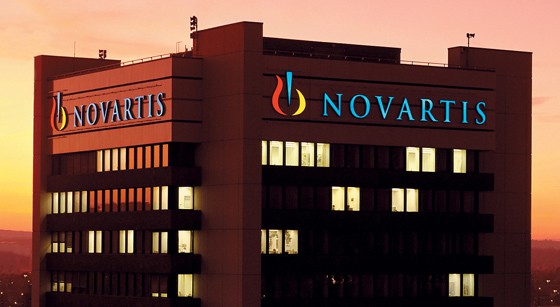
Novartis has been granted EU approvals to three drugs acquired as part of its asset swap deal with GlaxoSmithKline, which closed earlier this year.
The Swiss company announced this morning that platelet-boosting drug Revolade (eltrombopag) has become the first approved drug in the EU for adults with the rare blood disorder severe aplastic anaemia (SAA) who have not responded to or cannot receive other treatments.
SAA is a blood disorder – thought to be cause by an autoimmune reaction – in which the bone marrow does not make enough red blood cells, white blood cells and platelets. It is generally treated with immunosuppressive drugs or a haematopoietic stem cell transplant.
Revolade – sold as Promacta in the US – has previously been approved to treat the rare disorder chronic immune thrombocytopenia (ITP) in Europe and is also authorised for both ITP and SAA in the US.
After a slow start, the product started to make headway for GSK with sales of around $350m last year, up by a third, and Novartis said recently the product is now one of the fastest-growing in its portfolio and is predicted to become a $1bn-plus brand.
“Promacta is one of the products from the GSK transaction that we said could become a blockbuster product for us,” said Novartis’ David Epstein after the company reported $116m in second-quarter sales for the drug.
Epstein said recent approvals in SAA and paediatric ITP will be a major factor, along with potential future indications such as myelodysplastic syndromes (MDS), but he also noted that big gains would come from Novartis’ stronger distribution channels outside the US.
Melanoma duo cleared as combination
Meanwhile, earlier this week Novartis got a green light from the European Commission to market Tafinlar (dabrafenib) and Mekinist (trametinib) as a combination therapy for unresectable or metastatic melanoma with a BRAF V600 mutation.
Around half of all melanoma patients have mutations in the BRAF protein kinase gene, and V600 accounts for the majority of this group.
The company notes that “this is the first targeted therapy combination approved in the EU” for this indication, although it has previously been cleared in the US, Australia, Canada and certain other world markets.
BRAF inhibitor Tafinlar was approved as a monotherapy for melanoma in 2013 – the second in the class to reach market after Daiichi Sankyo/ Roche’s Zelboraf (vemurafenib) – and brought in sales of $208m for GSK in 2014. Meanwhile, last year Mekinist became the first MEK inhibitor to be approved in the EU, and added $105m to the pot in 2014.
Novartis said it intends to roll the combination therapy out across Europe “as soon as possible,” and some analysts have predicted that sales of the two drugs could eventually top $2bn a year thanks to solid survival data.
The combination demonstrated improved overall survival against the current standard of care with Tafinlar monotherapy in two phase III studies, extending it from 18.7 months to 25.1 months.
Novartis’ transaction with GSK saw the transfer of $20bn-worth of assets and thousands of employees between the two companies.




